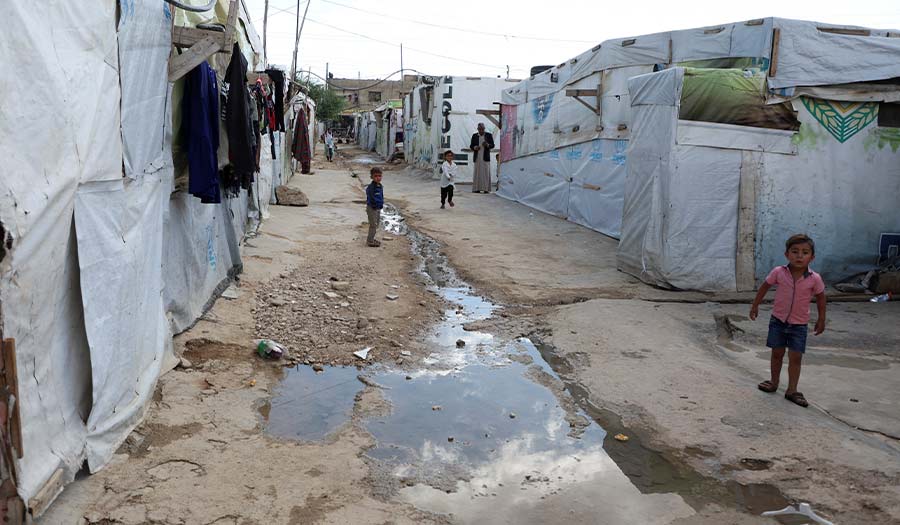 REUTERS/Mohamed Azakir
REUTERS/Mohamed Azakir
World News Desk
Learn the why behind the headlines.
Subscribe to the Real Truth for FREE news and analysis.
Subscribe NowBEIRUT (Reuters) – A few chickens, the children’s teddy bears and bundles of sodden clothes were all Karma Akiki and her family could save when floodwaters swept away their flimsy home in a settlement housing Syrian refugees in northern Lebanon.
Heavy rains, flooding and landslides along the Lebanese coast last month took a heavy toll on low-lying slum areas where many Syrians live, displacing hundreds of refugees and causing extensive damage to their often-precarious shelters.
“It seems that we are not only punished by an endless war, but also by nature and climate,” said Akiki, a mother-of-four who left Damascus in 2017 after her home was destroyed during fighting in the country’s civil war.
Standing beside the family’s new temporary tent in Beirut’s southern suburb of Ouzai, she told the Thomson Reuters Foundation how the family had scrambled to save themselves and a few possessions when heavy rains flooded their shack earlier in November.
Wading through floodwaters up to their chests, Akiki’s husband led the family to safety as the two oldest children dragged a raft loaded up with the belongings they were able to rescue.
In recent years, a series of storms and floods have added to the difficulties faced by the roughly 1.5 million Syrian refugees who live in neighboring Lebanon.
Last year, at least 340 refugee tents were destroyed, said Nadine Mazloum, a spokeswoman for the U.N. refugee agency (UNHCR), and this year’s flooding has intensified fears about a cholera outbreak that has mostly affected refugee camps.
“Flooding is not good for cholera (water) contaminants,” Caretaker Health Minister Firas Abiad said in a text message.
Lebanon had been cholera-free since 1993, but 5,000 cases have been reported since October, highlighting the impact of a four-year-old economic crisis on health and sanitation services in the nation of about 6.5 million people.
Charities Overwhelmed
For many refugees living in Lebanon’s flood-prone coastal areas, including the Hay Al-Tanak neighborhood of Tripoli where Akiki’s family lived, home is no more than a plastic sheet or tarpaulin held up by wooden poles or slung over trees.
Karim Kouwatli, a 45-year-old refugee who lived in Ouzai until his home flooded, has been living with his family under a plastic sheet on the side of a road in Beirut for more than two weeks.
“One morning we awoke to the sound of running water trickling into the camp,” Mr. Kouwatli said.
“It crept up on our tent until we realized we had to move,” he said, gesturing to the handful of belongings—cooking pots, clothing and blankets—that the family had been able to carry with them.
Charities are overwhelmed due to the lack of funds to provide cash assistance or temporary housing to refugees in Lebanon, said Rasha Beydoun, director of Make A Difference, an organization that provides food to low-income households.
UNHCR helps refugees and vulnerable Lebanese access safe water during storms and floods, and provides blankets, winter jackets and solar lamps, but Ms. Mazloum said limited resources would not stretch to everyone.
“Many vulnerable families...will struggle to cope with the winter season. No one should be left out in the cold this winter,” she said.
More on Related Topics:
- U.S. Military Pier for Carrying Aid to Gaza Will Be Dismantled After Weather and Security Problems
- The Taliban’s Morality Police Are Contributing to a Climate of Fear Among Afghans, UN Says
- Israel vs. Iran – Insights and Aftermath
- The Leader of Lebanon’s Hezbollah Militant Group Warns Archenemy Israel Against Wider War
- In Northern Gaza, Starved Families Survive on Bread Alone



